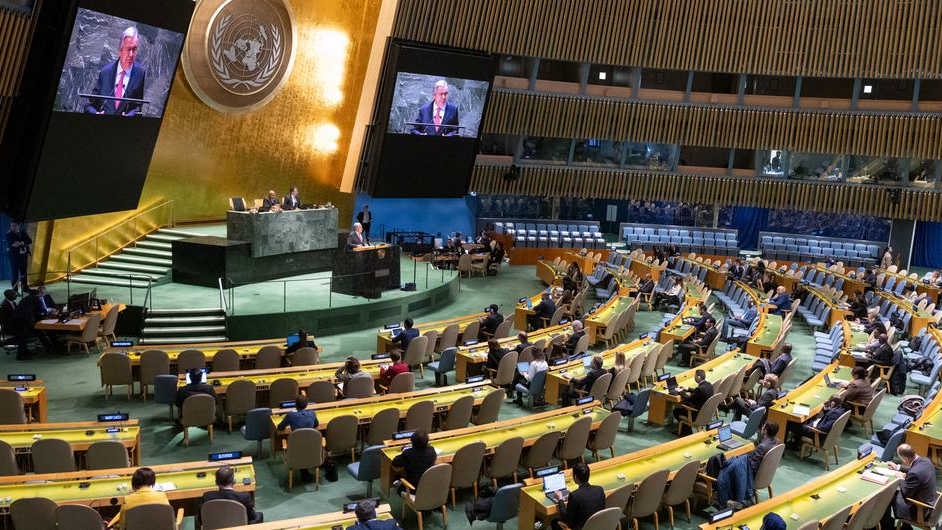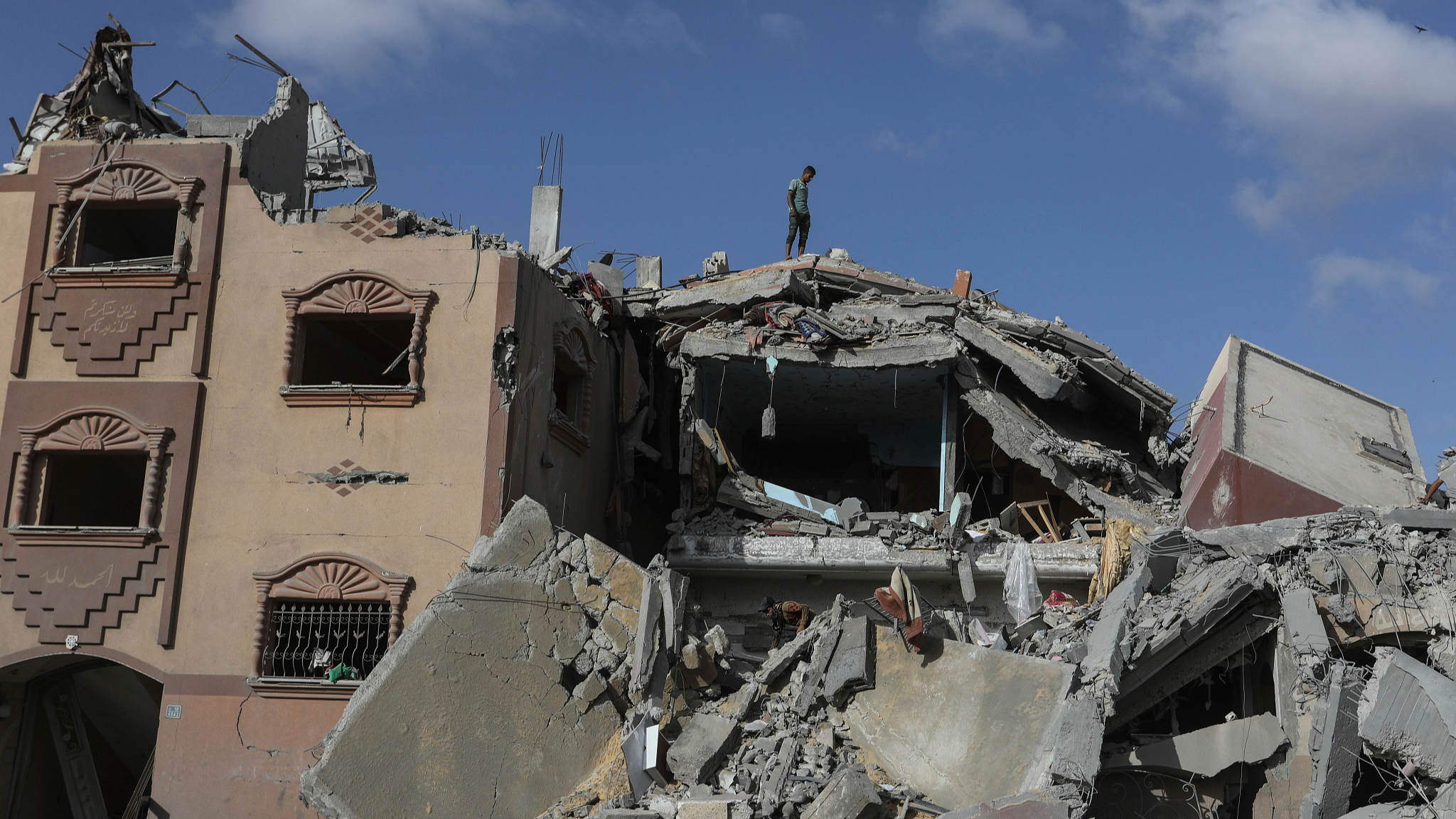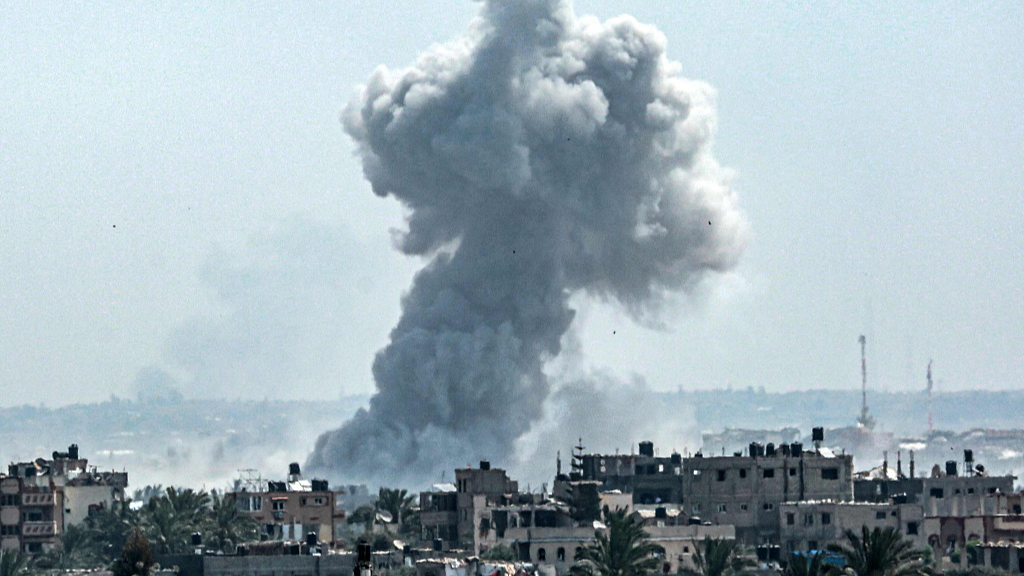UN Secretary-General Antonio Guterres warned that the world is entering into an “age of chaos” and that peace remains the absent element amid escalating conflicts, widening divides and intensifying polarization.
Addressing the UN General Assembly with a list of priority areas for action, the UN chief underscored that the UN was founded on the pursuit of peace.
“Peace is our raison d’etre. Yet, as I scan the landscape of today’s world, the one thing missing most dramatically is peace,” he said.
‘An age of chaos’
Guterres mentioned conflicts in Gaza, Sudan and Ukraine, increased terrorism in the Sahel, the presence of armed factions in the eastern Democratic Republic of the Congo, and the devastation caused by gangs in Haiti, underscoring that civilians bear the brunt of these crises.
“For millions of people caught up in conflict around the world, life is a deadly, daily hungry hell,” he said.
He specifically addressed the crisis in Gaza, terming it a “festering wound on our collective conscience.” He called for an immediate humanitarian ceasefire, condemning the October 7 attacks by Hamas and other militant groups on Israeli civilians, while stressing the need for a two-state solution.
The UN chief also pointed to a “deadlocked” Security Council. He described the current dysfunction as deeper and more dangerous, signalling the world’s entry into “an age of chaos.”
“We are seeing the results: a dangerous and unpredictable free-for-all with total impunity,” he continued, warning of risks ranging from stealthier nuclear weapons to new domains of conflict and weapons.
Calling for action in a multi-polar world
Guterres said that peace is “the thread that weaves through the world’s common fabric” and is “the way out of these interlinked crises; it is a rally cry… and a call to action.”
He asserted that if all countries fulfilled their obligations under the UN Charter, every person’s right to a life of peace and dignity would be guaranteed.
“But, governments are ignoring and undermining the very tenets of multilateralism with zero accountability,” he said.
To address the complexities of today’s multipolar world, the UN chief underlined the need to strengthen and renew global peace and security frameworks.
He recalled the New Agenda for Peace, which he launched in mid-2023, advocating for Security Council reform, a recommitment to eliminating nuclear weapons, intensified conflict prevention efforts and measures to mitigate the impact of geopolitical competition on global trade rules, supply chains, currencies and the internet.
The UN chief urged world leaders to seize the “Summit of the Future” opportunity, which will be held in September in New York on the sidelines of the annual General Assembly, to “shape multilateralism for years to come”.
Fulfilling obligation for future generations
The UN chief also voiced concern about rising hate speech, discrimination, extremism and human rights abuses globally.
He called for a renewed social contract based on trust, justice and inclusion, anchored in human rights, including his Call to Action for Human Rights and a forthcoming code of conduct for information integrity.
Addressing the impact of new technologies, he also noted the work of the Advisory Body on Artificial Intelligence, which reflects the central convening role of the organization, bringing together governments, private companies, academia and civil society.
Guterres highlighted the interdependence of peace and sustainable, inclusive development and emphasized that achieving the Sustainable Development Goals (SDGs) is crucial for building peace and prosperity.
To keep the promise of the SDGs, he called for progress in two crucial areas: the SDG stimulus of $500 billion annually in affordable long-term finance for developing countries and reform of the international financial architecture to respond to the needs of all countries.
He also stressed that the climate crisis remains the world’s most pressing challenge.
Guterres noted the inevitable decline of the fossil fuel era and the unstoppable renewable energy revolution. Urging action this year to prevent a climate catastrophe, he called for tripling global renewable energy capacity, doubling energy efficiency by 2030 and exploring innovative sources of climate finance.
He urged a collective commitment to this obligation for present and future generations, affirming his unwavering dedication to pushing for peace.
Source(s): Xinhua

 News6 days ago
News6 days ago
 Sports6 days ago
Sports6 days ago
 News6 days ago
News6 days ago
 World6 days ago
World6 days ago
 Sports6 days ago
Sports6 days ago
 News6 days ago
News6 days ago
 News6 days ago
News6 days ago
 News7 days ago
News7 days ago


















